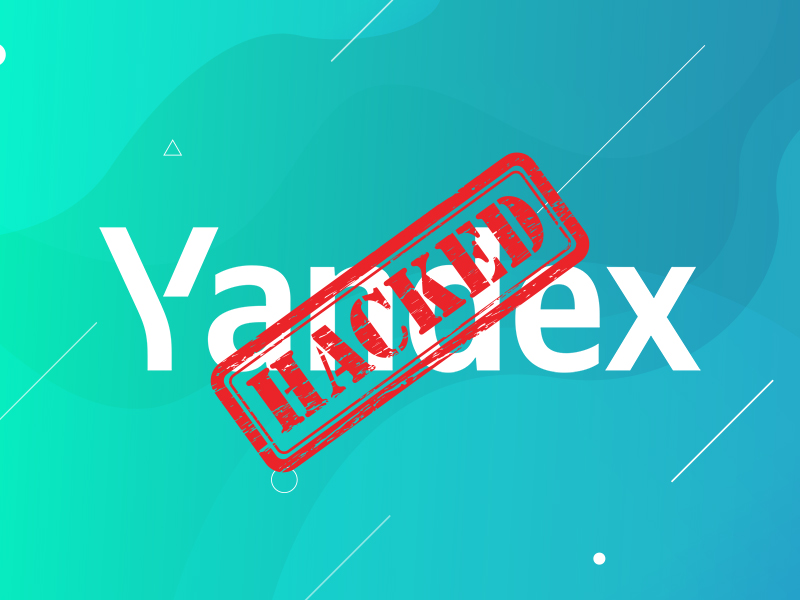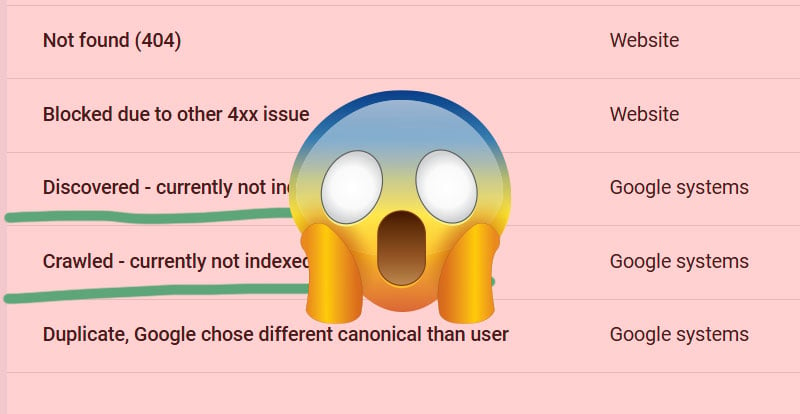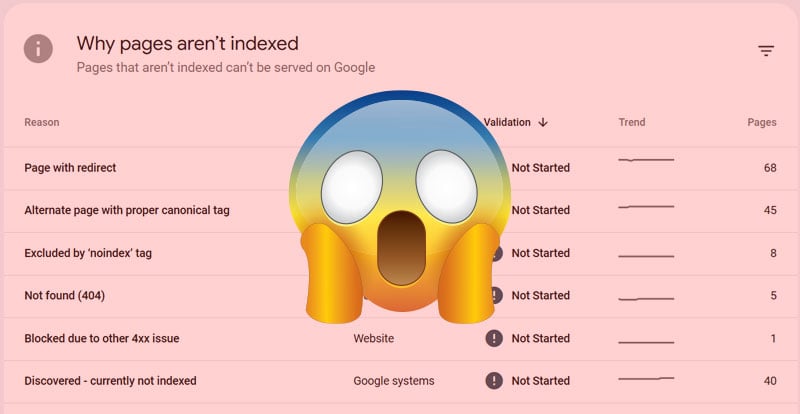Yandex has blamed a code leak on a former employee, who supposedly released archives related to some of the inner workings at Yandex.
The archives do not contain personal information and they’re not fully comprehensive for all aspects of how the Yandex search engine works. The Yandex leak does, however, include their 1900 ranking factors, which is huge for anyone in the SEO field.
Until now, we’ve only been given small bites of what goes into ranking a website on any search engine. We take what Google tells us and run tests to find what and how something will impact a site’s ranking. While I’m not familiar with Yandex, I’d say it’s safe to assume it’s going to be similar to any other search engine.
There are 1900 signals so it will take a while to go through them all. So far, the usual suspects are there at the top with backlinks, relevance, location, keywords, etc. I’m looking for anything that we may not have known, or maybe factors that are way more important than we thought.
We make some damn good websites.
Hit Us UpWhy this is significant
Yandex is one of the largest search engines in the world. It’s the biggest in Russia so they definitely know a thing or two about search.
Google, the largest in the world, has not shared any fully concrete list of ranking factors - it's their propriety information. We can make assumptions and inferences based on what they’ve told us, but there has never been any published list. And for good reason, if one were to leak, SEO’s would know how to game the system.
Someone like me would know exactly what a website needs to rank a website.
And guess, what? This list tells me exactly that for Yandex.
Again, Yandex is not Google but we can learn a lot from their list and see how Google might do similar things.
About The List
So, I'm not going to post a link to the list because I have no idea what that opens us up to legally, so I'm just going to give some details about it.
- It's in Russian but a translated version is easy to find.
- The factors are ranked.
- There are columns for a description, tags, and other things which seem specific to Yandex.
- They say what rules are deprecated.
Top 10 Yandex Ranking Factors
Along with my interpretation of each factor.
- Page rank - This is most likely based on the PageRank algorithm that originated at Google and is, as far as they've told us, no longer used.
- Textual relevance - This must have to do with how relevant the text on the page is to the query that was typed in.
- Link relevance - This is related to backlinks and how topically relevant those links are to your website and the query. For example, if you are a dentist, a backlink from a website about cats will be way less powerful than one from the American Dental Association.
- Page rank bonus - If I'm understanding this correctly, this means that a high page rank website with relevant text will get a boost in the rankings.
- Link relevance all words - The amount of relevance of all words in a search query to your page's text content.
- Text relevance whole phrase - The amount of relevance of the entire phrase in a search query to your page's text content.
- Link relevance all words - this has to do with backlinks and the anchor text used for the link. They are looking for a link to have all of the words in a search query.
- Link relevance phrase - Same as above but it isn't as strict.
- Text relevance title - The amount of relevance of the search query to your page's title. Specifically, they look for the exact phrase in the first sentence. They do take stop words into account
- Text relevance whole header matched - In the <head> code of a website, there are a few pieces of meta data that can be placed to help inform a search engine of what your page is about. On Google, we focus on the title and description. Yandex is saying they look at the keywords as well.
Things that stick out
This is developing and new things will be added as I read through the document.
- Time of day matters
- Links from Russian Wikipedia matter
- URL length - They take the length and divide by 5.
- Backlink quality - They have an internal method of determining good and bad links. Google claims they no longer use this as a ranking factor and just disregard "bad" links. In the past, you had to use the disavow tool.
- It can detect machine-translated pages - a common SEO tactic is to translate content into a different language for easy content generation.
- Having a big picture matters - Not really sure what this means but there was a Google update recently where they said that there should be some text content immediately visible to a user and not just a large image with no context.
- The ratio of capital letters in the title matters.
- There are 3 rules for Tiktok - There are other website specific rules in there too.
- Yellowness? I don't know if this is a translation error or if they just hate yellow. There are many rules related to "yellow" images.
- Speed, Mobile, and HTTPS matter - duh
- Medical and financial queries have their own rules - We call these YMYL (your money, your life) in the SEO world. These are harder to rank for because of the implications of INCORRECT information. Google has higher standards for these queries. You know, supposedly...
- It checks for Google Analytics - Possibly a negative ranking factor? Anti-competitive?
- Analytics data seems to matter - Let me know if you have more info about this, but not all websites have Yandex analytics installed so this doesn't seem fair to include. There are, however, rules related to how much time a user spends on a page and how many clicks or actions they take while there (among other things). Google has said they don't use these as ranking factors.
- Any date in the URL before 2008 is considered "ancient" and obsolete - I'd probably solve this by rewriting it and changing the URL to not have a date in it. Don't forget to redirect the old URL to the new one.
- They check for ads and Yandex ads separately
- Popularity matters - I take this to mean that something that is going "viral" may show higher.





